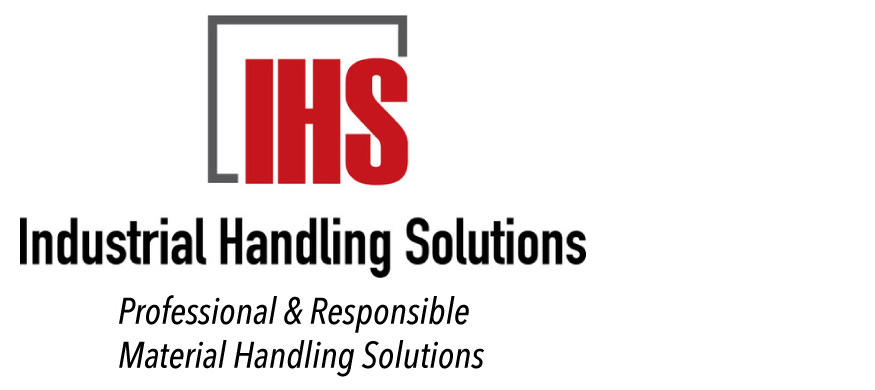S.C. shops prepare to flip signs to 'open'
Plus: College application anxiety ramps up as SAT and ACT tests get canceled; N.C. coronavirus deaths overtake flu deaths; Truist earnings beat expectations; Congress nears deal on small-business help
Today is Monday, April 20, 2020. You’re reading The Charlotte Ledger, an e-newsletter with local business-y news and insights for Charlotte, N.C.
If you like what you see, please forward to a friend.
Need to subscribe? Sign up for free here (charlotteledger.substack.com). A paid subscription, starting at $9/month, gives you access to all articles and helps build smarter original, local news in Charlotte. Details here.
South Carolina to reopen stores and beaches this week; Fort Mill home decor shop owner awaits ‘a real happy day’
By Cristina Bolling
South Carolina plans to ease restrictions on many retail businesses and to open the state’s beaches in the next few days, a move that business owners across the state line are celebrating.
Gov. Henry McMaster plans to announce the changes today, according to the Charleston Post and Courier:
On Monday, McMaster will issue orders allowing beachgoers and visitors to rivers and lakes to use public accesses and shoppers to head back to clothing, jewelry and furniture stores, said Trey Walker, the governor’s chief of staff.
Infection rates have dropped enough to ease some restrictions, Walker said. But state health officials have said they are not expecting a peak on coronavirus cases until early May. …
Social distancing will be enforced on the state’s 187 miles of coastline with authorities allowed to charge groups of three or more considered a health threat. People had been able to access beaches, rivers and lakes on private property. …
Stores allowed to reopen include department stores, flea markets and florists as well as shoe, luggage, book, craft and music shops.
The changes will take effect Tuesday. They’re expected to include limits at shops of five customers per 1,000 s.f. of space or 20% of occupancy, whichever is less. The governor is also examining whether to allow salons and gyms to reopen, the paper said.
Low infection rates: North and South Carolina have lower infection rates than more than half the states in the country, according to the New York Times. South Carolina ranks No. 31, with 82 confirmed cases per 100,000 population; North Carolina ranks No. 41, with 62 confirmed cases per 100,000.
For South Carolina business owners, the news that they can reopen comes as a big relief — but one they’re cheering with caution because it’s clear the marketplace has changed drastically since before Covid-19.
Take Cathie Smith, whose gift and home decor shop, Crossings on Main, has been a fixture in downtown Fort Mill for 27 years.

Getting ready for customers: Cathie Smith, owner of Crossings on Main in Fort Mill, says she’s already preparing to reopen this week after being closed for a month.
Smith closed her store on March 17 but has kept the shop open by pumping up the volume of social media posts, creating “Crossings Care Packages,” doing phone orders with no-contact curbside pickup and making home deliveries.
Smith also started selling her store’s goods through an e-commerce site called Shopify. To her surprise, she drew some customers from faraway states like Ohio and Illinois, who ordered candles and soaps and sponges soaked with essential oils.
Smith is hoping to retain some of the online business she’s built even after her shop reopens to customers.
On Sunday, she was excited at the thought of calling her part-time workers back into service. She and her store manager will spend today evaluating inventory and working to “kind of fluff things up” so shoppers have a fresh, updated store to visit starting Tuesday morning.
“It’ll be a real happy day,” she said.
South Carolina’s move to start reopening comes as other states are showing progress in the battle against the virus:
Texas Gov. Greg Abbott has announced that his state would reopen state parks, allow retailers to offer to-go sales and let medical offices and hospitals perform diagnostic tests and surgeries that had been put on hold.
In Florida, beaches reopened on Friday, while in Iowa, Gov. Kim Reynolds committed to a phased reopening of businesses while also announcing that schools would not reopen for the remainder of the academic year.
In New York, which has the most coronavirus deaths, Gov. Andrew Cuomo said on Sunday that the state appears to be on “the other side” of its plateau of coronavirus cases.
North Carolina: In our state, Gov. Roy Cooper last week laid out requirements he’d like to see before easing restrictions here, including increased testing and more data. In Mecklenburg County, officials are assembling a panel of business and government leaders to advise on reopening, The Ledger reported on Saturday.
Several coastal towns in North Carolina have started reopening beach access, including Surf City, Emerald Isle and Atlantic Beach, the News & Observer reported Sunday.
No beach vacation yet: Before you start raising an eyebrow and thinking, “I’ve been cooped up in my house with my family for a month and could use a beach getaway,” you should know that most beach towns in North and South Carolina are still prohibiting vacation home rentals and hotel stays — including Myrtle Beach and Hilton Head. As of now, most of those orders expire April 30 or May 1.
The retail openings are going to create an interesting dynamic in areas close to the S.C. border. If you are a florist in Ballantyne, you’re probably pretty steamed that a competitor a few miles away in Indian Land, S.C., is allowed to open while you are shut.
The bigger question is this: Once retailers start reopening, how many shoppers will return? Their business is likely to be slower than usual for weeks or months.
SAT cancellations leave Charlotte students in limbo
Imagine spending months studying for the crucial SAT, trying to master algebra and geometry and honing those reading comprehension skills. And then, with almost no warning, the tests are cancelled … and it’s unclear when they’ll resume.
That’s the situation many Charlotte-area high school students find themselves in, and it’s throwing a huge wrench in plans to apply to colleges. The fallout is hitting local test preparation companies, students and their parents. It’s even forcing colleges to alter how they will evaluate applicants.
The Ledger’s David Griffith looked into the issue and found that students are in limbo:
Charlotte-area test prep companies are scrambling, SAT and ACT tests have been cancelled, and it’s unclear if they’ll be able to resume this summer as planned. In response, some colleges are modifying their admission requirements, which can sometimes add to the confusion for students.
“They plan these things, as you know, out from early in junior year,” said Jack Whelan, director of college guidance at Providence Day School. “When they’re going to be taking these tests, they take them each multiple times, and suddenly their schedule is really interrupted or changed.”
The full piece is available on The Ledger’s website.
Today’s supporting sponsors are Industrial Handling Solutions:

… and T.R. Lawing Realty:

How many Mecklenburg hospitalizations?
The county said last week it expects coronavirus cases to peak June 8. So are conditions worsening at Atrium and Novant hospitals?
We don’t know. Unlike the state, the county doesn’t release data on hospitalizations.
The Ledger asked the city-county Joint Information Center on Friday for the number of hospitalized Covid-19 patients in Mecklenburg. Its reply: “No answer at the moment.”
We asked again Sunday and received this response: “We will check on this for you. It will be [Monday] before we have a definitive answer for you.”
Wouldn’t you like to know that number? Wouldn’t it be helpful toward figuring out if our hospitals are about to be overwhelmed? We’ll keep asking each day and printing the response (or non-response).
Statewide, the number of coronavirus hospitalizations reached an all-time high of 465 on Sunday:

(Source: N.C. Department of Health and Human Services)
— TM
Coronavirus data: New projections, flu deaths surpassed, Mecklenburg cases coming up short
New estimate on N.C. peak: A revision to the University of Washington coronavirus models over the weekend shows that North Carolina peaked five days ago and that “relaxed social distancing may be possible” after May 11. It predicts no N.C. deaths after May 3. Mecklenburg health officials said last week that they and local hospitals considered the Washington model but believed it to be too optimistic, so they went with one from the University of Pennsylvania instead.
Surpassing flu deaths: Over the weekend, the number of North Carolina deaths attributed to the coronavirus surpassed those attributed to the flu. As of Sunday, the state counted 172 coronavirus deaths. It says 167 deaths are attributable to the flu.
New cases fall for second straight week: Mecklenburg had 218 new confirmed coronavirus cases for the week ending April 18. That’s down from 283 for the week ending April 11 and 351 for the week ending April 4, according to a Ledger analysis of publicly released county health data.
Falling short of projections: Mecklenburg health officials last week showed a chart that estimated that the county would reach 2,100 confirmed coronavirus cases by April 25, WFAE’s Steve Harrison pointed out in an article on Friday. As of Sunday, Mecklenburg had 1,183 cases … which means that to reach the number of cases predicted by April 25, the county would need to average about 153 new confirmed cases per day before then. In the last week, it has averaged 33 new cases per day. — TM

A slide from a presentation by Mecklenburg health director Gibbie Harris to county commissioners last week shows “current 14-day projected growth” to about 2,100 confirmed cases by April 25. The county appears to be falling far short of that number.
In brief:
Truist earnings rise: Truist’s 1Q earnings rose and beat analysts’ expectations, the company said Monday morning. Net income was up 32% from a year ago, and the Charlotte-based bank set aside $893M for future losses related to Covid-19. Revenue for the quarter was $5.6B. (Morningstar/Dow Jones)
Washington close to extending loan program: Negotiators in Congress appear close to striking a deal to extend the emergency loan program for small businesses, which ran out of money last week. Treasury Secretary Steven Mnuchin said the measure would total more than $400M and include $300M for the Paycheck Protection Program. A deal could be announced as soon as today. (Politico)
Aid for not-so-small businesses: Many Charlotte-area small businesses were shut out of the federal government’s emergency loan program when the funding ran out Thursday. But some big nationwide restaurant chains did get their hands on some of the money, including Shake Shack, Ruth’s Chris Steak House and Fogo de Chao. Shake Shack later announced that it was giving back its entire $10M loan, “so that those restaurants who need it most can get it now.” (CNN, Wall Street Journal, Bloomberg)
‘Stay at home’ lawsuit: Two anti-abortion groups have filed lawsuits against the city of Charlotte after protestors were charged with violating the county’s “stay at home” order. They “argued they were unfairly targeted by police when officers handed out a dozen citations and made eight arrests outside a women’s clinic in east Charlotte earlier this month.” (WFAE)
Working from home: About 38% of jobs in the Charlotte region can be performed from home, according to a new study from researchers at the University of Chicago. That’s slightly above the national average of 37%. A Ledger analysis of census data last year found that the number of Mecklenburg County residents working from home has grown 60% since 2013, to about 1 in 12 workers.
Japan offers aid to sex workers: Japan’s coronavirus aid package is available to the country’s sex workers. “Sex workers across Japan have been hit hard by closures and restrictions due to the pandemic. … To soften the economic blow, the central government has launched a massive stimulus package worth 108 trillion Japanese yen (about $989 billion). After some controversy, sex workers are eligible to apply for aid, under certain conditions — a move some activists have hailed as a sign of progress for an industry that has long suffered social stigma.” (CNN)
From The Ledger’s new managing editor

In a post yesterday, Cristina Bolling, our new managing editor, shared why she joined The Ledger after spending the last 20 years as a Charlotte Observer reporter:
Last month, in the midst of a global pandemic, with three kids suddenly in need of homeschool guidance and the arrival of a new puppy at my house … I quit my job.
It had been a great job, really, one that gave me license to roam the city in search of stories for the Charlotte Observer.
But a new adventure was calling. …
Two weeks ago, I joined The Ledger as its managing editor, and I want to take this opportunity to introduce myself and to tell you how you can help us create something that is good for our city. …
Our goal is to inform you, to deliver you smart news and analysis, to not waste your time with clickbait stories or excessive advertising. We want you to finish reading the Ledger and feel satisfied that you’re a well-informed citizen of Charlotte.
If you enjoy The Ledger, you can help us build better local news for Charlotte by considering a paid subscription, telling your friends and sharing ideas with us.
If you’d like to read more about Cristina and her experience, her full letter is available here. We announced her arrival a couple weeks ago in this note to subscribers.
Feel free to drop Cristina a line at cristina@cltledger.com.
Taking stock: Not as bad as you’d think?
Unless you are a day trader, checking your stocks daily is unhealthy. So how about weekly? How local stocks of note fared last week (through Friday’s close), and year to date:

From The Wall Street Journal (subscriber-only):
The Dow Jones Industrial Average staged its best two-week performance since the 1930s, a dramatic rebound that has left many investors with a confounding reality: soaring share prices and a floundering economy.
The explosive rally is a sign that many are positioning for the U.S. to make a speedy recovery when the coronavirus crisis eases. Investors have been encouraged in recent days by signs that several states will move to resume business, along with hopes that a viable treatment for Covid-19 could be near. …
The Dow and S&P 500 are still down more than 10% for the year, while the Nasdaq’s losses have been cut to 3.6%
Many investors agree the most important driver of the rebound has been the Federal Reserve’s massive stimulus plan, combined with the efforts of the U.S. government, which sent a signal that both were willing to step in like never before to buoy the economy.
Need to sign up for this e-newsletter? Here you go:
Got a news tip? Think we missed something? Drop us a line at editor@cltledger.com and let us know.
Like what we are doing? Feel free to forward this along and to tell a friend.
Archives available at https://charlotteledger.substack.com/archive.
On Twitter: @cltledger
Sponsorship information: email editor@cltledger.com.
The Charlotte Ledger is an e-newsletter and web site publishing timely, informative, and interesting local business news and analysis Mondays, Wednesdays, Fridays and Saturdays, except holidays and as noted. We strive for fairness and accuracy and will correct all known errors. The content reflects the independent editorial judgment of The Charlotte Ledger. Any advertising, paid marketing, or sponsored content will be clearly labeled.
Executive editor: Tony Mecia; Managing editor: Cristina Bolling; Contributing editor: Tim Whitmire; Reporting intern: David Griffith


